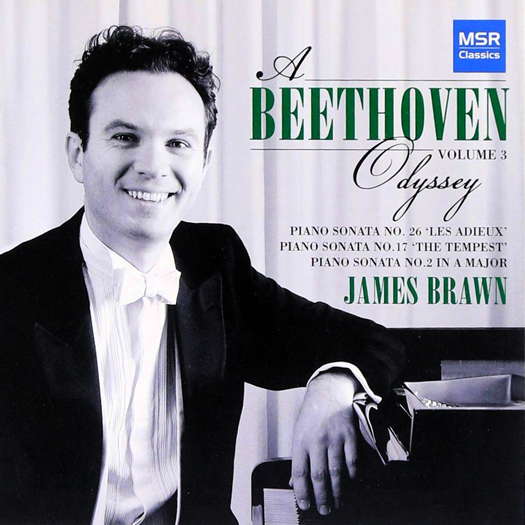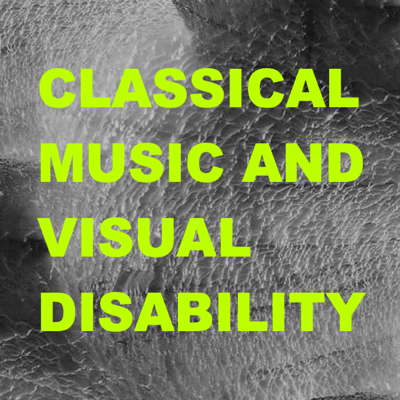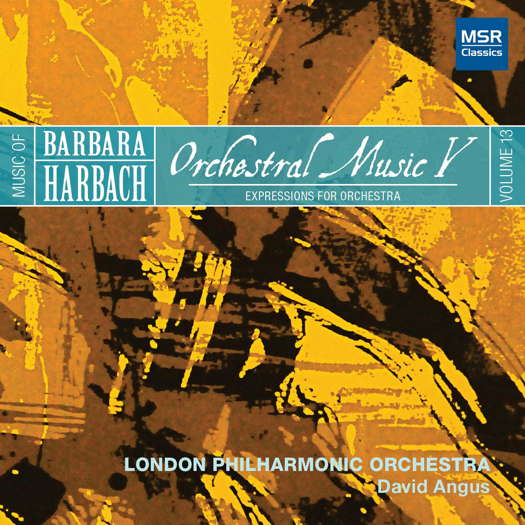 DISCUSSION: John Dante Prevedini leads a discussion about Composers, individuals or collective?, including contributions from David Arditti, Halida Dinova, Robert McCarney and Jane Stanley.
DISCUSSION: John Dante Prevedini leads a discussion about Composers, individuals or collective?, including contributions from David Arditti, Halida Dinova, Robert McCarney and Jane Stanley.
 SPONSORED: CD Spotlight. Masterful Handling - Volume 3 of James Brawn's Beethoven, praised by Andrew Schartmann.
SPONSORED: CD Spotlight. Masterful Handling - Volume 3 of James Brawn's Beethoven, praised by Andrew Schartmann.
All sponsored features >>
 PODCAST: John Dante Prevedini leads a discussion about Classical Music and Visual Disability, including contributions from Charlotte Hardwick, Robert McCarney, Halida Dinova and Giuseppe Pennisi.
PODCAST: John Dante Prevedini leads a discussion about Classical Music and Visual Disability, including contributions from Charlotte Hardwick, Robert McCarney, Halida Dinova and Giuseppe Pennisi.

A Fine Composer
Orchestral music by American composer Barbara Harbach, heard by GEOFF PEARCE
'... the London Philharmonic Orchestra is very fine and conductor David Angus obviously provides great insight into how this music should be performed.'
A prolific performer and composer, Barbara Harbach commands much respect. This disc is volume thirteen of her music released by MSR Classics. The works presented here were all composed in 2017.
The first work, Suite Luther, is in five movements, three of which use 'Ein Feste Burg ist unser Gott'.
The opening motet is exuberant and opens with quite a fanfare of timpani and cymbals and uses the popular chorale named above. It is quite uplifting, but to be honest I like the quieter woodwind passages when they occur. However, on saying that, this opening is perfectly suitable to introduce the work.
Listen — Barbara Harbach: A Fortress Strong (Suite Luther)
(track 1, 1:15-1:57) © 2019 Barbara Harbach :
The second movement, 'In peace and joy I now depart', utilises two different sections, one conveying peace and the other joy. The music is effectively evocative of the two emotional states and it conjures up a feeling of the Renaissance. Based on a six phrase hymn by Luther, it is, to me at least, one of this disc's finest tracks.
Listen — Barbara Harbach: In Peace and Joy I Now Depart (Suite Luther)
(track 2, 4:04-4:58) © 2019 Barbara Harbach :
The next movement is a chorale fantasy based on the second verse of 'Ein feste burg' - 'Christ, the new contender'. it starts quietly and there is interplay between woodwind and strings. This builds more triumphantly once the brass enter, and they provide a majesty and triumphant sonority to end the movement.
The next movement, 'From Deepest Depths I cry to you', is reflective and plaintive and again, very effective music that reflects motion from the depths to a more exulted place.
Finally, 'Ein Fest Burg' returns to end the suite in a triumphant fashion. For myself, I think I would have preferred the treatment of five different chorales for this suite, and found the quieter reflective movements reached me than the more exuberant ones.
The next work, Arabesque Noir in three movements, was inspired by designs found within Arabic and Moorish decoration.
The beginning of 'Looking for an Angel' reveals some truly lovely writing for flute, oboe and strings, and the solos are ravishingly played. The horn, trumpet, oboe and clarinet take up the tune. The horn introduces a new, more playful theme, and eventually the first section returns. The composer cleverly uses canon and other devices into the music, but it does not sound at all pretentious.
Listen — Barbara Harbach: Looking for an Angel (Arabesque Noir)
(track 6, 0:00-0:45) © 2019 Barbara Harbach :
'Evening Love' reflects just that - an evocation of the lovers entwined in the embrace of darkness. It is mostly tender and rises in passionate tension before somewhat resolving in a soaring horn tune that depicts being a slave to love. All the themes intertwine and seductively vie for dominance before finally subsiding into the final chord.
The last movement, 'In the still, I will wait', explores the trysts of lovers, even if death intervenes. At times tender and at others triumphant, the movement ends quietly as if what remains are the memories of yesteryear.
Listen — Barbara Harbach: In the still, I will wait (Arabesque Noir)
(track 8, 3:37-4:36) © 2019 Barbara Harbach :
Early American Scandals looks at four events in the eighteenth and nineteenth century United States. It looks back at periods that the composer is intrigued by, with themes of revolution, slavery, civil war and the accompanying social unrest that is present in all of them.
The first movement, 'Love - Revenge', depicts unwanted advances between master and slave, or when the love object chooses another. There are two main themes that reflect this. This is very easy to listen to, and like everything else on this disc, is very well-realised and performed. There is nothing sinister about the work, but at times one cans sense an uneasiness.
The next movement, 'River Styx', has four themes which revolve around the choices we make in life: some good and some bad, and hints at the fact that we will all eventually face judgement, and that we very often do not get what we want.
'The Vulture Hours' depicts those times when sleep does not come easily and thoughts are troubled by what one has done in the past, but also what has not been done. This movement was inspired by the effects of John Wilkes Booth's actions upon his family.
The final movement, 'Virginia's Real Reel', is based on three fiddle tunes dating from the Revolutionary war and Civil war periods. This colourful piece is a very enjoyable way to round off this little suite.
Listen — Barbara Harbach: Virginia's Real Reel (Early American Scandals)
(track 12, 1:17-2:13) © 2019 Barbara Harbach :
The final work, Recitative and Aria, carries on this period theme, as it was inspired by the life of Edwin Booth, one of the greatest American actors of the period, but whose life is largely remembered by the deeds of his younger brother, John Wilkes Booth.
The opening Recitative varies somewhat in mood, reflecting the turmoil that must have gone through Edwin Booth's mind at various times.
The final track is the 'Aria' reflecting the other tragedy in Ewin Booth's life - the loss of his wife after three years of marriage. This is a wistful yet tender and at times hopeful movement, evoking memories of his wife and dreams of when they will be reunited.
Listen — Barbara Harbach: Aria (Recitative and Aria)
(track 14, 2:11-3:09) © 2019 Barbara Harbach :
This is the second disc of Barbara Harbach's music I have reviewed. I could not relate to the previous one, in spite of numerous hearings, but this disc is an entirely different matter. Here is a fine composer with her own unique voice. She has a gift for melody, is a fine orchestrator and is obviously skilled at counterpoint and harmony. Added to this, the London Philharmonic Orchestra is very fine and conductor David Angus obviously provides great insight into how this music should be performed. I look forward to hearing more of her work.
Copyright © 6 September 2020
Geoff Pearce,
Sydney, Australia

CD INFORMATION - BARBARA HARBACH: ORCHESTRAL MUSIC V
FURTHER INFORMATION - BARBARA HARBACH
FURTHER INFORMATION - MSR CLASSICS


